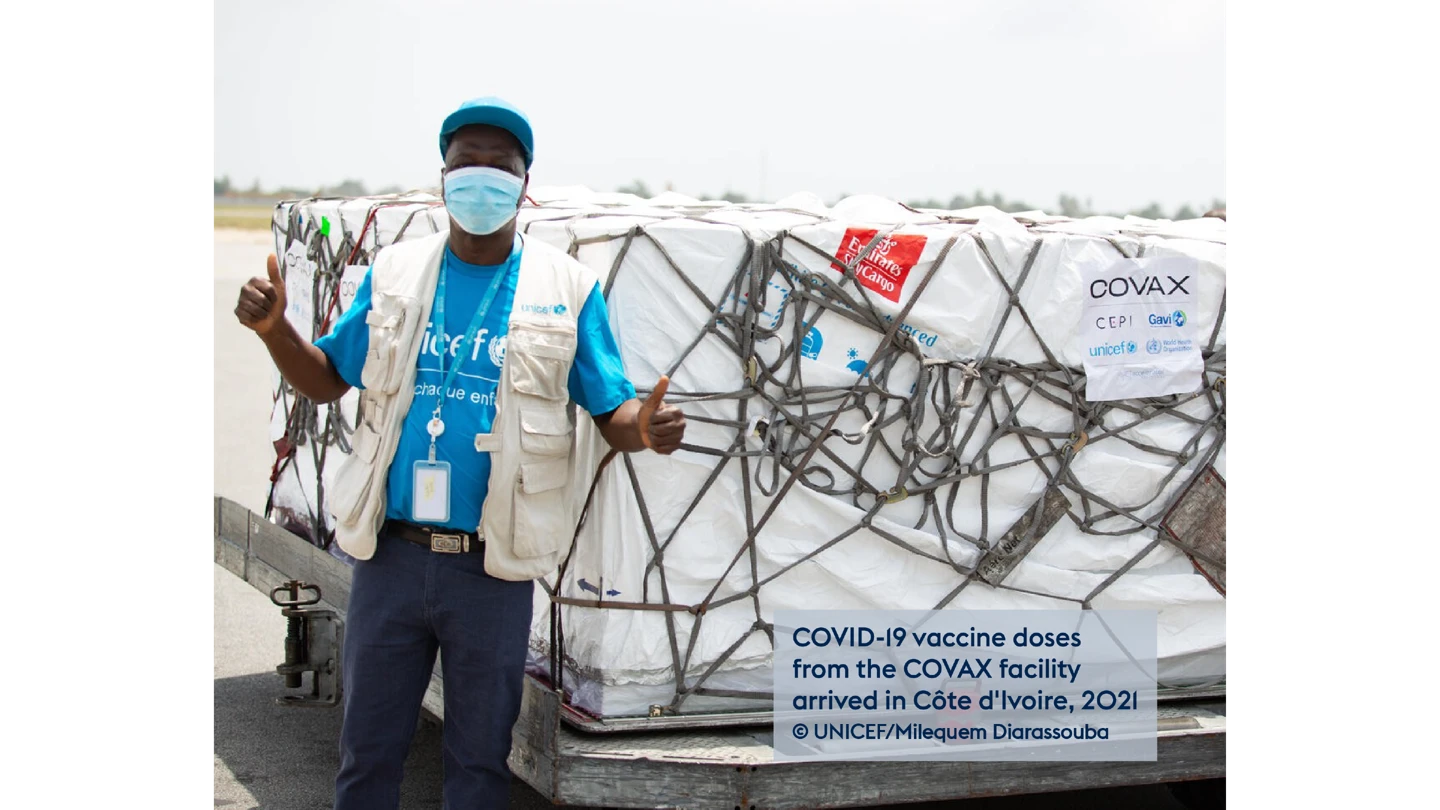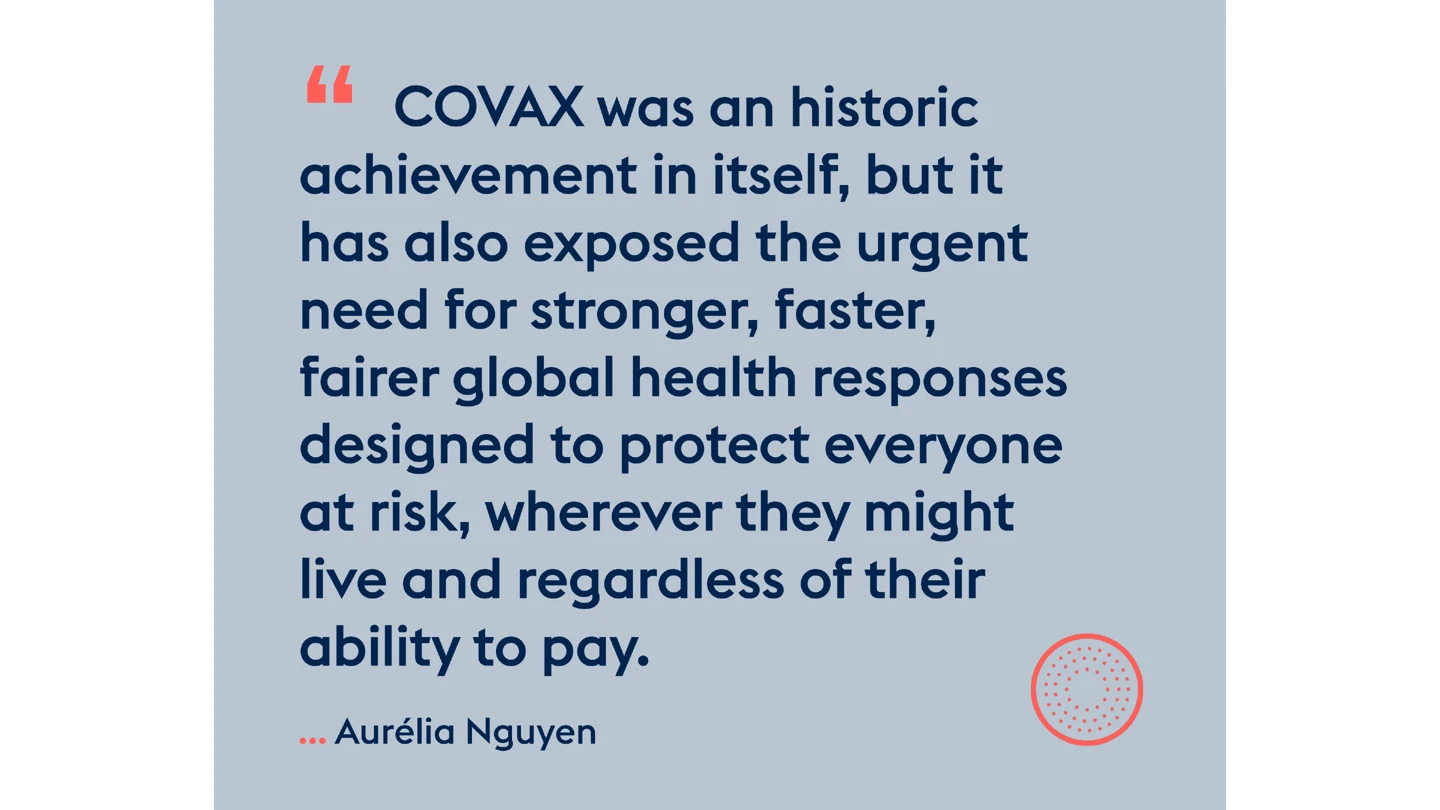COVAX: The “world first” vaccine sharing scheme that saved millions
Almost as soon as COVID-19 was declared a pandemic, when CEPI had already backed multiple pandemic vaccine development projects, its leaders knew they also needed to devise a way to get those vaccines to the people across the world who were most at risk.
Ugly “vaccine nationalism” had dominated the world’s response to the 2009 H1N1 Swine Flu pandemic. This time around, a global vaccine sharing system was needed to try to mitigate against deadly inequity.
CEPI’s deputy CEO Aurélia Nguyen explains how equitable access to vaccines saves lives.
___________
On Wednesday, February 24, 2021, almost a year after the World Health Organization had declared COVID-19 a global pandemic, a flight carrying 600,000 doses of an effective new vaccine landed in Ghana's capital Accra. Two days later, a similar plane loaded with 504,000 doses touched down in Abidjan in Côte d’Ivoire.
These deliveries were small, but historically highly significant.
They came at a time when already more than 210 million doses of COVID vaccine had been administered globally, half of which had gone to people living in just two high-income countries. Meanwhile more than 200 mainly less wealthy countries had not yet had access to a single dose.
The historical significance of the doses arriving in West Africa—of a CEPI-backed vaccine developed by the pharmaceutical company AstraZeneca in partnership with Britain’s University of Oxford and produced by the Serum Institute of India—was this: they were the first to be delivered under a world-first vaccine-sharing scheme known as the COVID-19 Vaccines Global Access Facility, or COVAX.

Aurélia Nguyen, who is now Deputy Chief Executive of CEPI and was previously Managing Director of COVAX as part of her work at Gavi, the Vaccine Alliance, says COVAX was conceived at an early point in the outbreak—a factor that was crucial, but also one that should be accelerated even more in future.
“From the very start of COVID—even before it had turned into a fully-blown pandemic, it was clear that we wouldn’t just need vaccines for the world, we would need vaccinations for the world,” she recalls.
“It was also clear that we needed to avoid the terrible failings of the 2009 Swine Flu pandemic when a small number of rich countries bought up almost the entire global supply of H1N1 vaccines. COVAX was a way of trying to get all of the world’s most vulnerable people vaccinated, not just some of them.”
So it was that after being launched in June 2020 by CEPI, the World Health Organization, Gavi and the United Nations Children’s Fund UNICEF, COVAX went from those first small steps in Ghana and Côte d’Ivoire to enabling the largest and fastest vaccine roll-out in history—all in the face of the deadly global crisis that was the COVID-19 pandemic.
By mid-January 2022, COVAX had shipped a billion doses to 144 countries, and on that year’s Africa Day—May 25—it shipped its 500 millionth dose to Africa.
In the Democratic Republic of Congo, President Felix Tshisekedi, who was at the time also Chair of the African Union, said the facility had “created a new paradigm that has shortened the time to access life-saving vaccines in Africa and has set the tone for the international solidarity that is essential for global recovery.”
Despite not reaching its ambitious goals as quickly as it had aimed to, COVAX ultimately delivered almost two billion doses of COVID-19 vaccines to 146 countries that might have had very few or even no vaccines without the facility’s help. Those doses are estimated to have saved 2.7 million lives of people in low and middle-income countries who would otherwise have been lost to COVID.
And now, as CEPI and international leaders seek to drive progress on the 100 Days Mission and on being ready to respond with speed, scale and access to future threats, the very existence of COVAX as a precedent is instructive.
“As a world first, COVAX focused international attention more than ever before on the need for medical and scientific defences against infectious diseases to be distributed more equitably—for both national and global self-interest,” says Nguyen.
“COVAX was an historic achievement in itself, but it has also exposed the urgent need for stronger, faster, fairer global health responses designed to protect everyone at risk, wherever they might live and regardless of their ability to pay.”

~2 billion
doses delivered through COVAX
146 countries
received COVAX vaccines
2.7 million
deaths averted in lower-income countries



